Academic search engines are powerful platforms designed to find scholarly papers, journals, studies, and academic sources. These platforms filter results through academic databases, citation indexes, and research repositories. They make it easier to access the relevant information required for academic work.
The challenge arises when students/researchers rely on traditional search engines. These general platforms mix academic and non-academic results, which makes users spend more time finding authentic sources. Sometimes, they even end up using unreliable sources in their research work.
That's why turning to a dedicated academic Google search engine is essential. Therefore, the purpose of this guide is to showcase reliable academic search engines that provide relevant scholarly content. Plus, you will also learn about how UPDF AI Online can enhance your research efficiency by providing an intelligent AI-powered deep research engine. Interested users can give it a try by clicking the button below.
Part 1. What Makes a Good Academic Search Engine?
Some of the key qualities that make an academic search engine good include:
Accurate & Credible Results
A good academic search engine shines for its ability to provide credible and relevant scholarly information without unnecessary noise. It indexes information from trusted sources, such as peer-reviewed journals, conference papers, university repositories, theses, and academic PDFs.
Advanced Filtering Options
A strong academic search engine will also offer advanced filtering options to help the user easily filter the results. The filter can be related to publication year, field of study, author, journal type, and more.
Speed and Usability
A good academic search engine offers a user-friendly interface that loads fast and supports keyword-rich queries. It delivers clean results that help researchers find relevant academic sources without unnecessary distractions.
Part 2. A New Way to Do Academic Searches: UPDF AI Online Scholar Research
Before we talk about the top academic Google search engines, we would like to share a modern and effective AI assistant to do academic searches: UPDF AI Online Scholar Research.
Traditionally, you would first locate relevant research papers, read through lengthy PDFs, extract key information, and then summarize your findings. All of this takes considerable time and effort.
UPDF AI Online shrinks all these steps into one simple click. The "Scholar Research" feature of UPDF takes your search keyword and looks for relevant academic work by conducting a "Paper Search". It accesses academic databases, peer-reviewed journals, reputable professional publications, and industry whitepapers to gather credible information for your research.
Afterward, it extracts the most accurate and reliable "Scholar Research Details" into PDF formats. Lastly, it builds a "Literature Review" with proper structure so that it's easier to review.
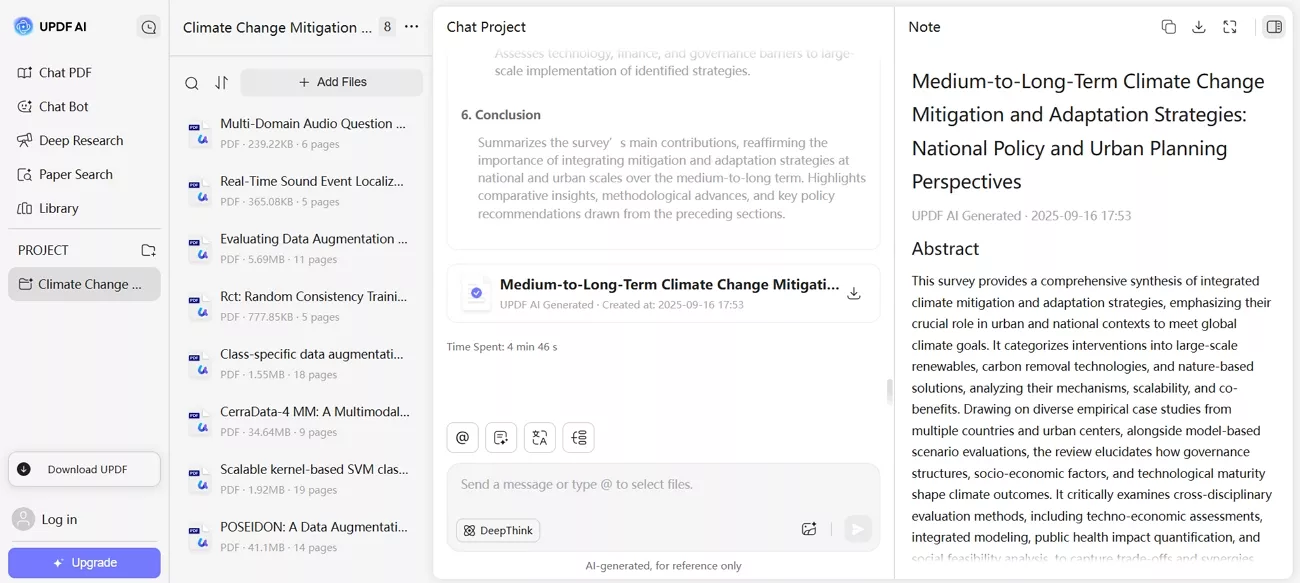
Simply put, UPDF AI academic search engine provides great assistance to students, researchers, and professionals in gathering and extracting relevant insights from vast sources in a fraction of time.
Key Features
- Targeted Keyword & Paper Search: Focus your research on exact keywords or specific papers to gather credible and relevant insights.
- Smart Data Processing: Converts extracted details into clean summaries and organized reports.
- Structured Literature Reviews: Generates well-formatted literature reviews you can copy or download.
- Downloadable Research Reports: Save or share complete AI-generated reports for referencing.
- Auto Citations & References: Get accurate and ready-made citations to maintain academic integrity.
- Interactive Document Analysis: Ask questions, summarize sections, or explore key points within your uploaded PDFs. You can also ask questions about selected research papers.
All these features help overcome traditional research barriers and lead to high-quality research outcomes.
Use Cases
1. Assistance in Assignments and Essays
Students can gather credible sources and extract key arguments. They also get proper literature reviews without spending hours scanning through PDFs.
2. Preparing Research Papers or Theses
Researchers can identify relevant studies, compare findings, generate citations, and compile literature reviews. This makes the writing and review phases much faster and more accurate.
3. Conducting Market or Industry Research
Professionals can use Scholar Research to analyze whitepapers, industry reports, and expert publications to support business decisions and proposals/presentations.
4. Understanding Complex Academic PDFs
Anyone working with lengthy or technical PDFs can summarize difficult sections and ask clarifying questions.
5. Classroom and Teaching Support
Educators can gather scholarly material for lectures and lesson planning for impactful academic presentations.
Also Read: Academic Writing Software >>
Steps to Use UPDF AI Online Scholar Research Feature
UPDF AI Online is not just a modern academic search assistant, but also a user-friendly tool anyone can use. Here are the simple steps to watch the Scholar Research feature in action:
Step 1. Go to UPDF AI Online from your browser and click "Deep Research" from the left sidebar.
Step 2. Enter the keyword related to the research in the prompt box and choose either "Standard" (medium research report depth) or "High Quality" (high research report depth).
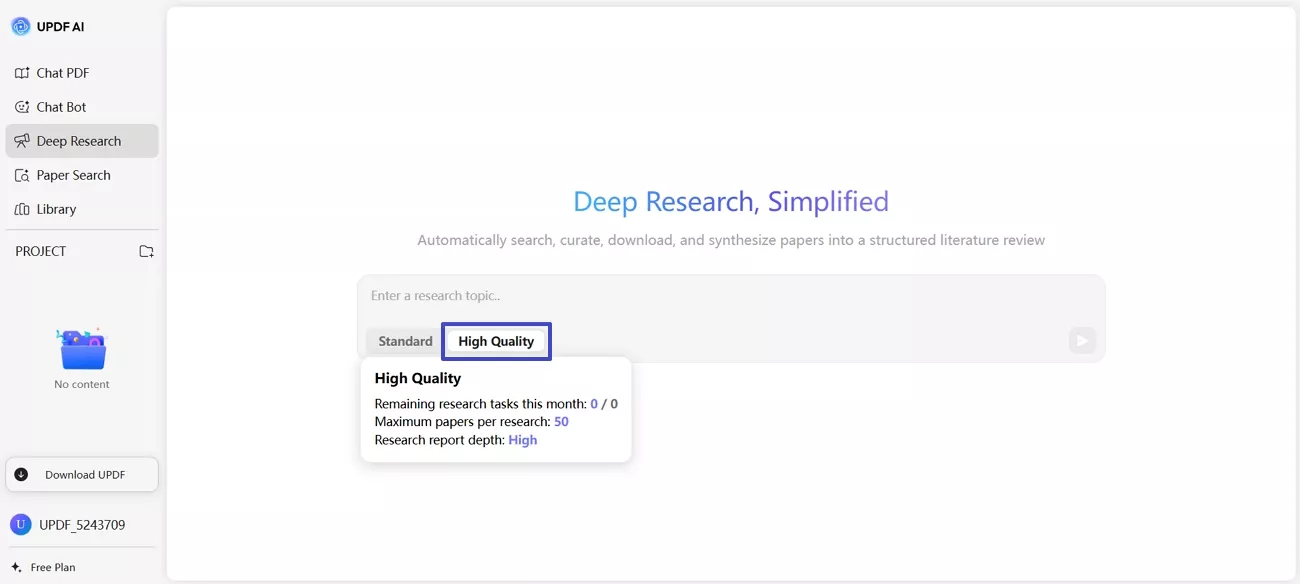
Step 3. Answer the AI's questions to guide its research better.
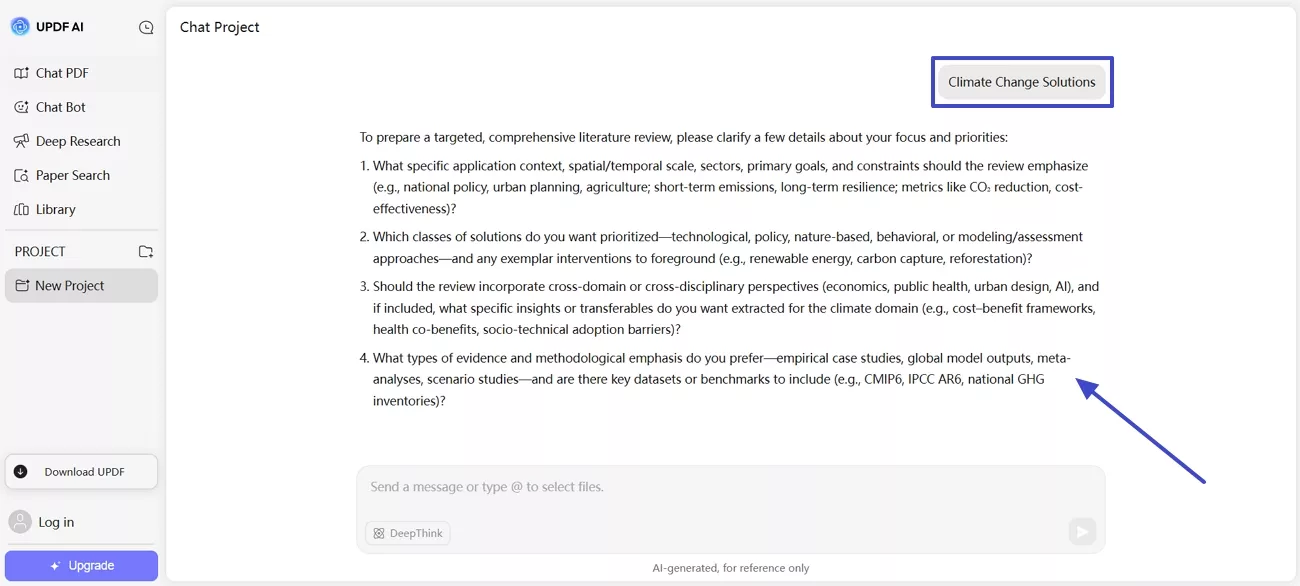
Step 4. Afterward, UPDF AI brings the research work for you: Paper Search > Processing Extracted Details > Generating Literature Review. Once processing is complete, you can view the comprehensive research report or click the "Download" button to save it.
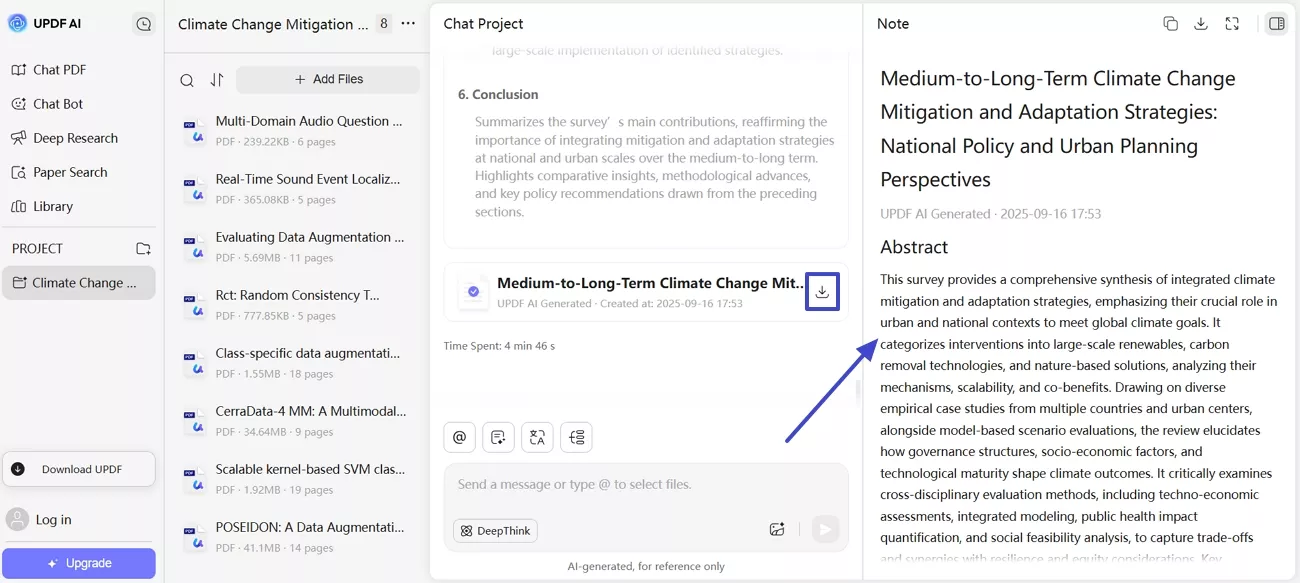
Step 5. You can also use the chat mode to interact with the generated report or extracted documents.
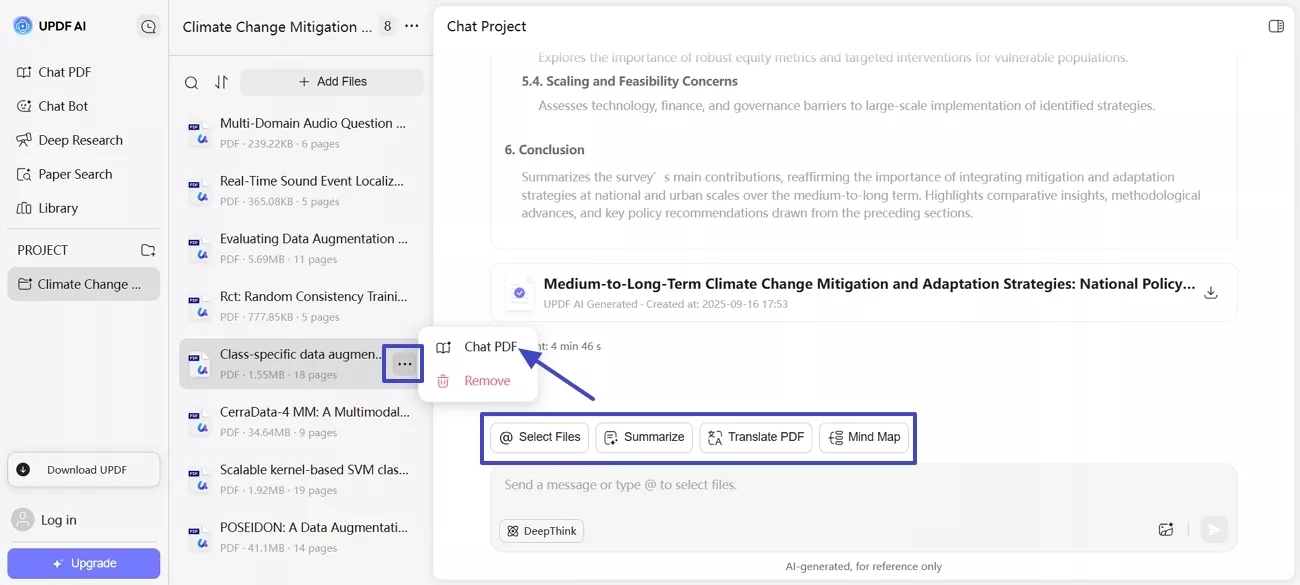
That's how quick and efficient it becomes to search academic sources with a click of a single button. Head to UPDF AI Online now and try its Scholar Research feature yourself.
Part 3. Other Top Academic Search Engines
UPDF AI offers a modern take on academic web search, but many other academic search engines offer a traditional manual-based search experience. Here are the top three engines you can consider:
ResearchGate & Academia.edu (Community-Based Platforms)
ResearchGate and Academia.edu are academic social networks where researchers upload their papers and share findings. These platforms often give access to full-text studies. You can easily use their intuitive search engines to look for relevant studies based on keywords or even authors.
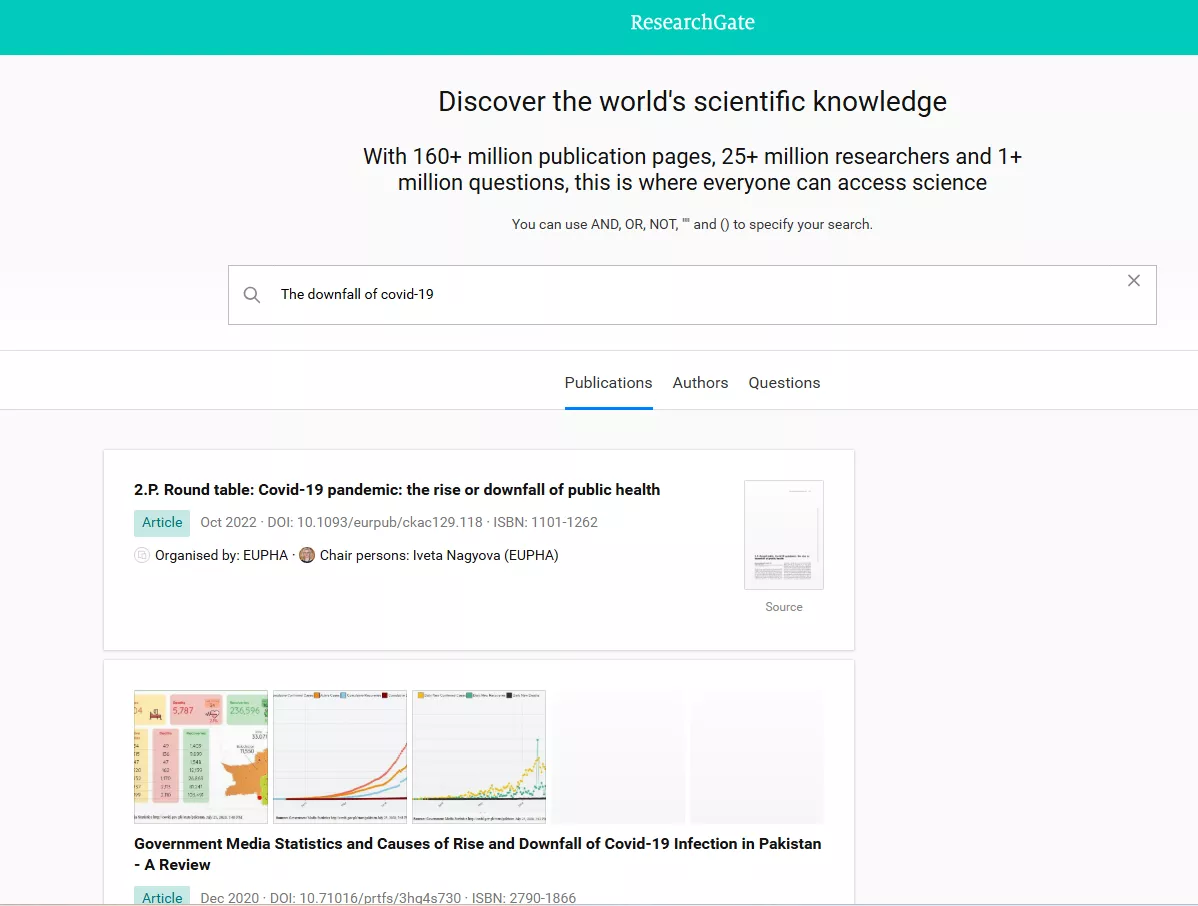
PubMed
PubMed is one of the best academic search engines for medical, biomedical, and life sciences literature. Its data include over 39 million citations for biomedical literature from MEDLINE, online books, and journals. You can get high-quality and relevant results, and even filter the results to find precise literature.
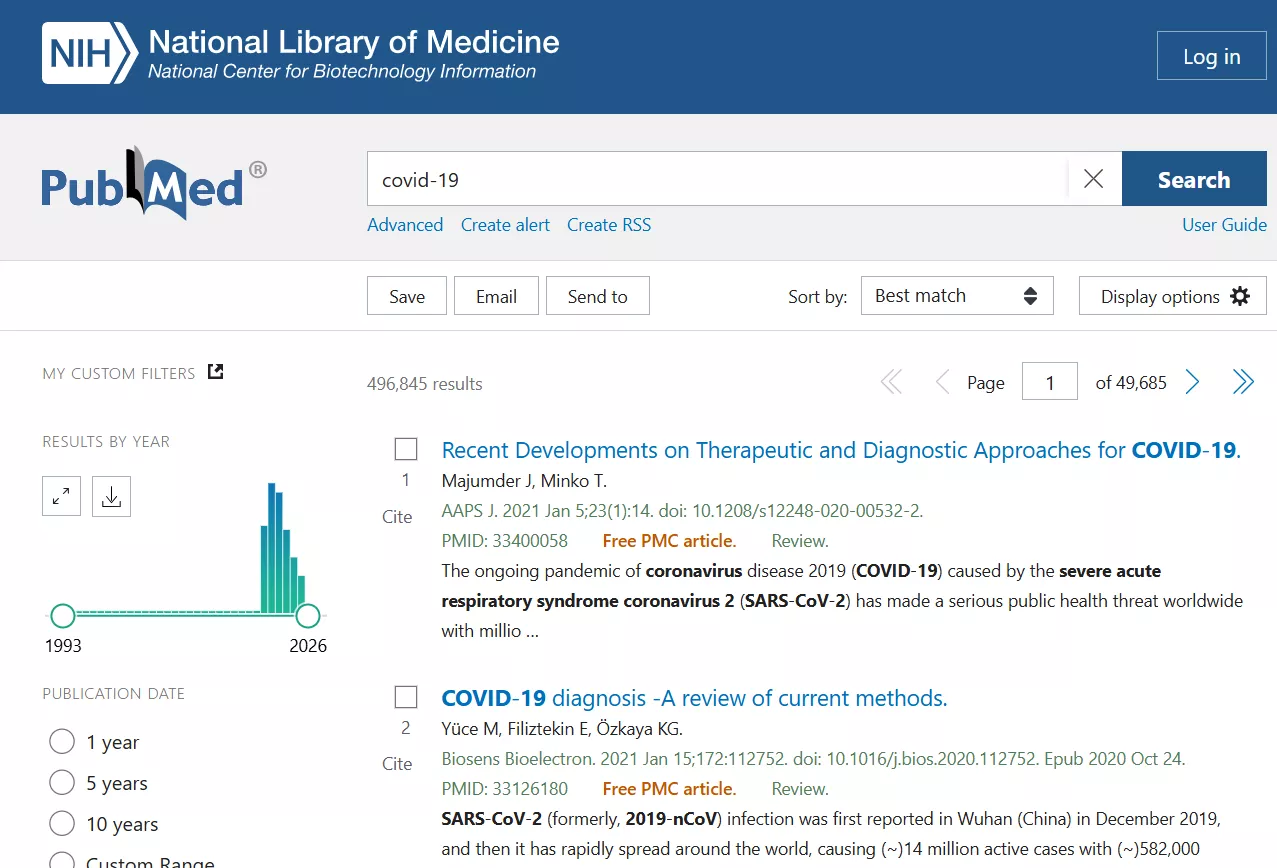
Google Scholar
Google Scholar is a popular and free academic Google search engine that is widely used for its accessibility and wide coverage. It provides access to academic articles, books, theses, and citations for various disciplines. However, it sometimes struggles to distinguish non-academic results.
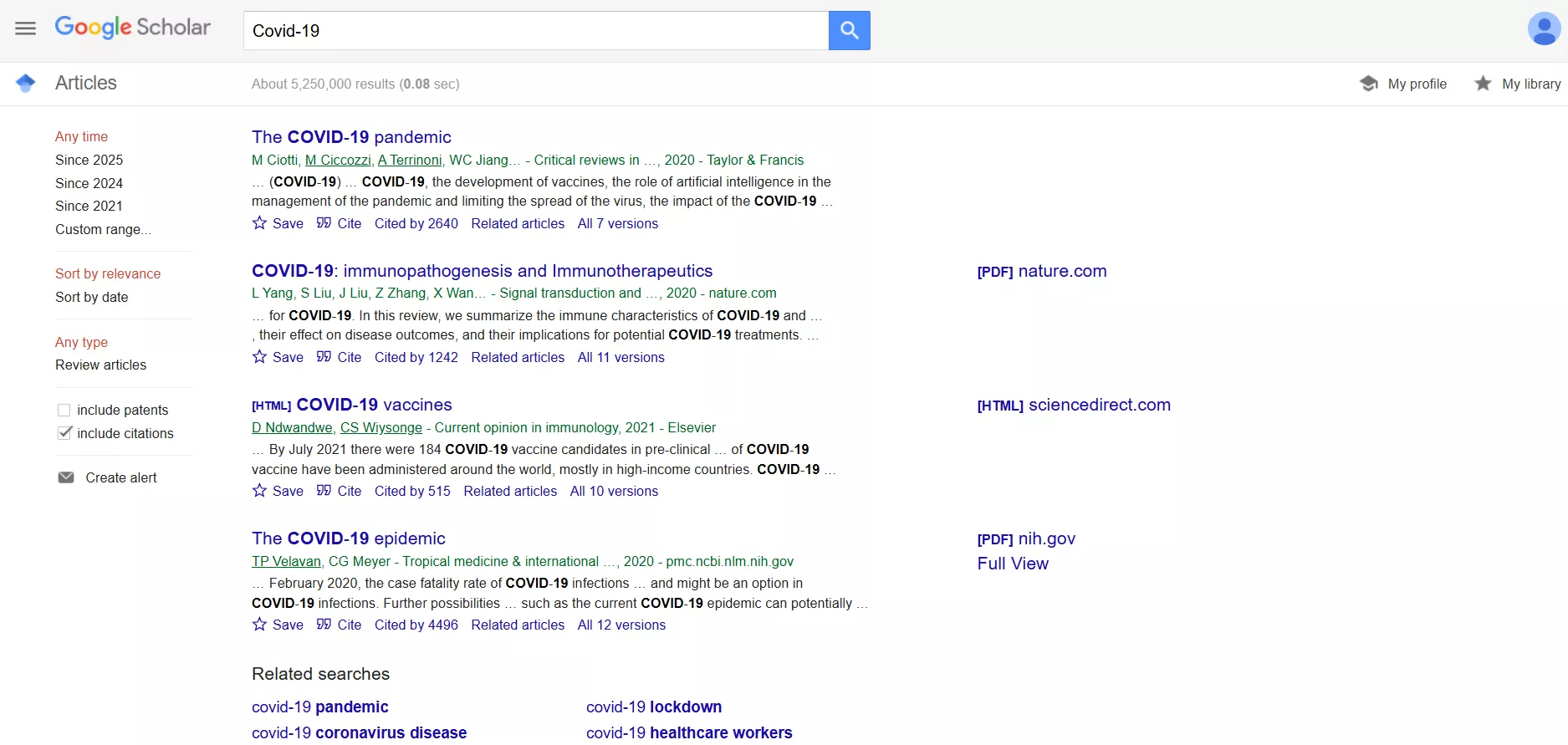
Also Read:
Part 4. UPDF AI Online vs Traditional Academic Search Engines
UPDF AI Online is different because it goes beyond just showing links. It digs trusted academic sources, synthesizes key insights, and presents them in structured form, not just raw web pages.
The comparison table below further helps understand the difference between UPDF AI and traditional academic search engines:
| Feature | UPDF AI Online | Traditional Academic Search Engines |
| Search Method | AI-automated research | Manual search and filtering |
| Paper Discovery | Finds papers automatically | User searches and selects |
| Info Extraction | Auto summaries and key points | Manual reading required |
| Literature Review | Auto-generated PDF review | Not available |
| Citations | Auto-generated citations | Limited, manual efforts required |
| Interaction | Ask questions, analyze PDFs | No interactive analysis |
| Report Download | One-click full report | Must create manually |
| Time Required | Minutes | Hours or days |
| Ease of Use | Very easy | Requires search skills |
| Best For | Fast, AI-assisted research | Detailed manual exploration |
Conclusion
Academic search engines are crucial to find relevant scholarly materials. However, it is important to choose the right one to enhance research quality and efficiency.
Among the traditional platforms, UPDF AI Online is shining as a modern AI platform that takes the experience to a new level with intelligent assistance in gathering, analyzing, and organizing research insights. Therefore, it's time you give UPDF AI Online a try and taste a faster and more efficient research experience.
 UPDF
UPDF
 UPDF for Windows
UPDF for Windows UPDF for Mac
UPDF for Mac UPDF for iPhone/iPad
UPDF for iPhone/iPad UPDF for Android
UPDF for Android UPDF AI Online
UPDF AI Online UPDF Sign
UPDF Sign Edit PDF
Edit PDF Annotate PDF
Annotate PDF Create PDF
Create PDF PDF Form
PDF Form Edit links
Edit links Convert PDF
Convert PDF OCR
OCR PDF to Word
PDF to Word PDF to Image
PDF to Image PDF to Excel
PDF to Excel Organize PDF
Organize PDF Merge PDF
Merge PDF Split PDF
Split PDF Crop PDF
Crop PDF Rotate PDF
Rotate PDF Protect PDF
Protect PDF Sign PDF
Sign PDF Redact PDF
Redact PDF Sanitize PDF
Sanitize PDF Remove Security
Remove Security Read PDF
Read PDF UPDF Cloud
UPDF Cloud Compress PDF
Compress PDF Print PDF
Print PDF Batch Process
Batch Process About UPDF AI
About UPDF AI UPDF AI Solutions
UPDF AI Solutions AI User Guide
AI User Guide FAQ about UPDF AI
FAQ about UPDF AI Summarize PDF
Summarize PDF Translate PDF
Translate PDF Chat with PDF
Chat with PDF Chat with AI
Chat with AI Chat with image
Chat with image PDF to Mind Map
PDF to Mind Map Explain PDF
Explain PDF Scholar Research
Scholar Research Paper Search
Paper Search AI Proofreader
AI Proofreader AI Writer
AI Writer AI Homework Helper
AI Homework Helper AI Quiz Generator
AI Quiz Generator AI Math Solver
AI Math Solver PDF to Word
PDF to Word PDF to Excel
PDF to Excel PDF to PowerPoint
PDF to PowerPoint User Guide
User Guide UPDF Tricks
UPDF Tricks FAQs
FAQs UPDF Reviews
UPDF Reviews Download Center
Download Center Blog
Blog Newsroom
Newsroom Tech Spec
Tech Spec Updates
Updates UPDF vs. Adobe Acrobat
UPDF vs. Adobe Acrobat UPDF vs. Foxit
UPDF vs. Foxit UPDF vs. PDF Expert
UPDF vs. PDF Expert



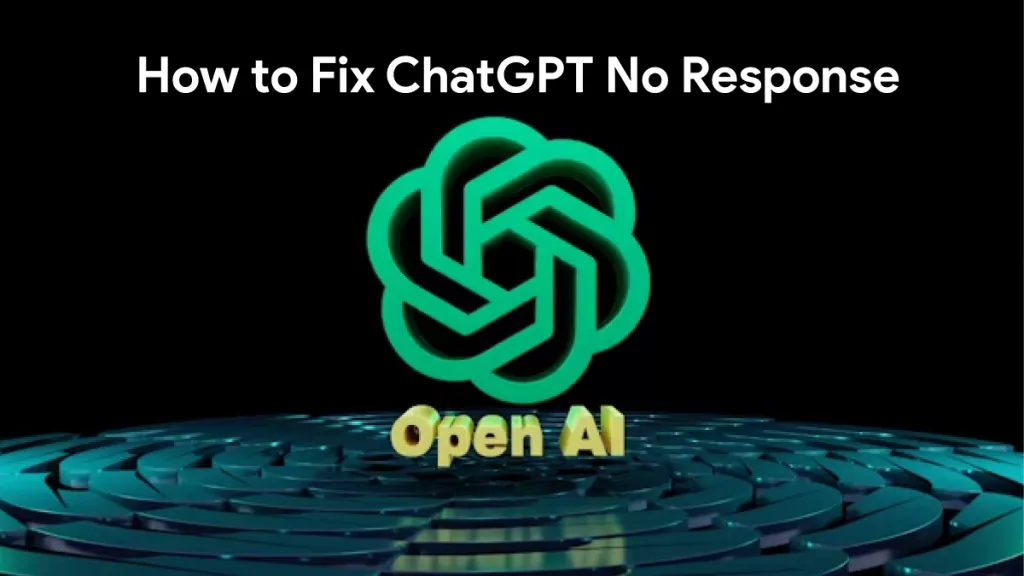
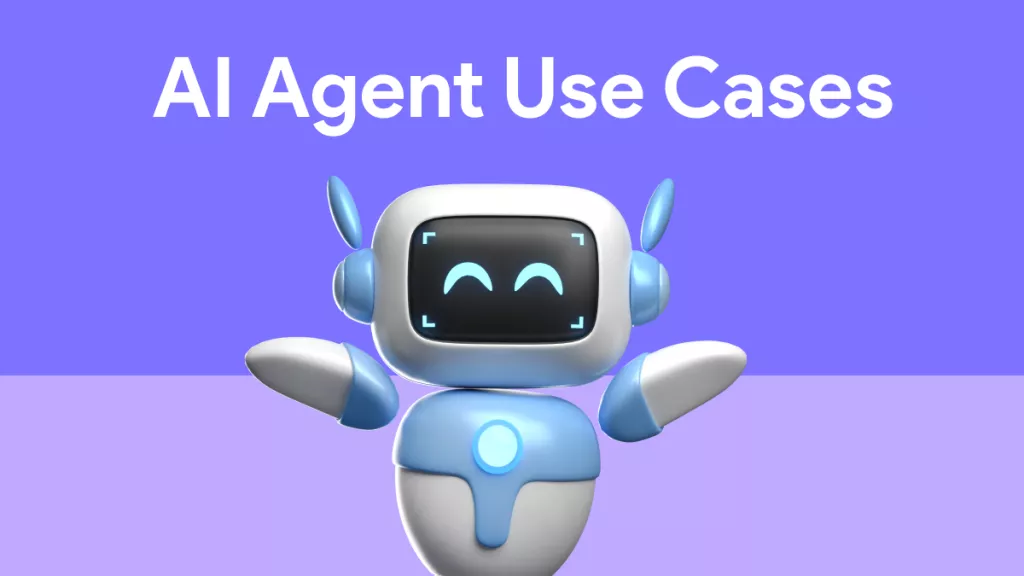


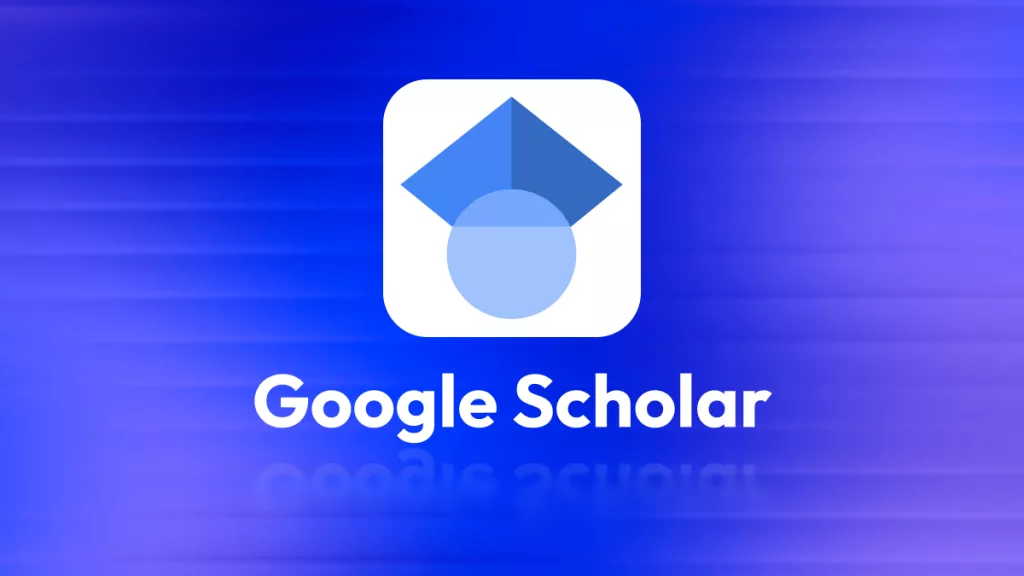
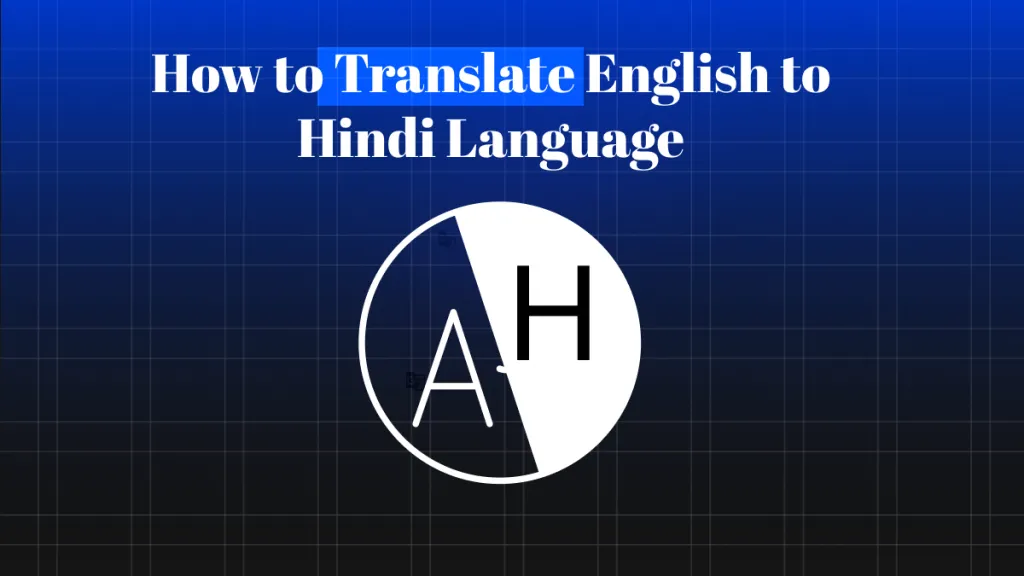
 Grace Curry
Grace Curry 
 Enola Davis
Enola Davis 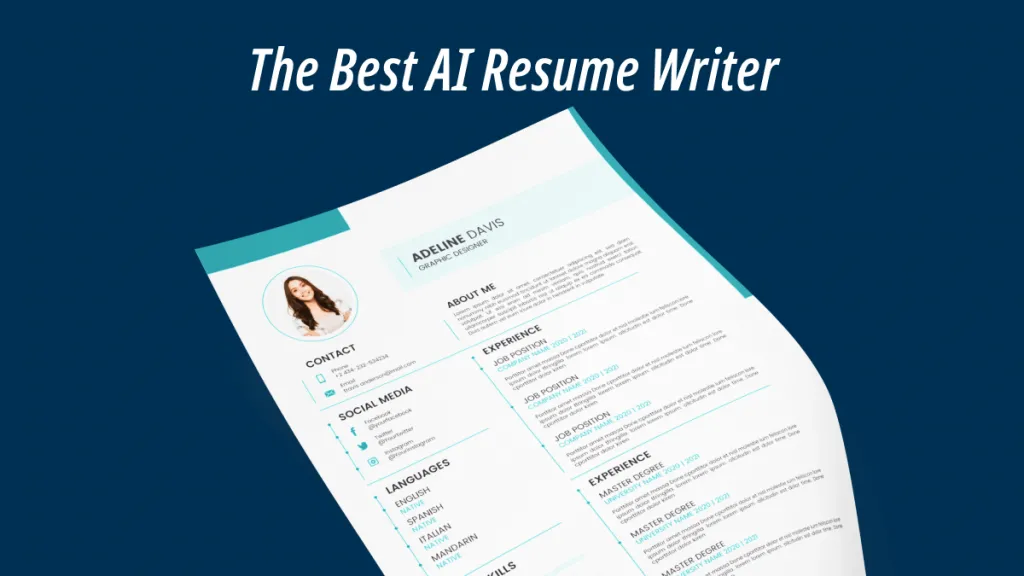
 Enya Moore
Enya Moore 
 Lizzy Lozano
Lizzy Lozano 
